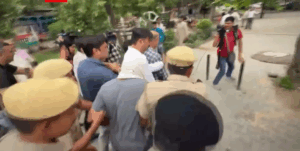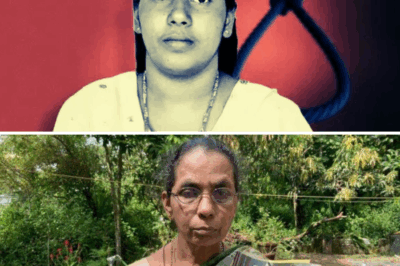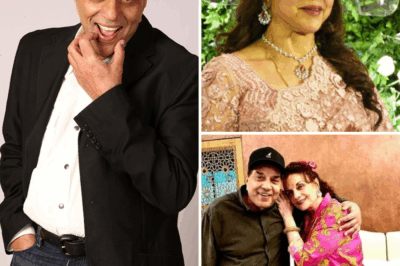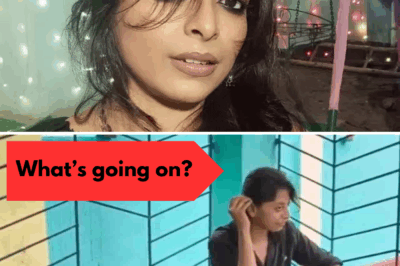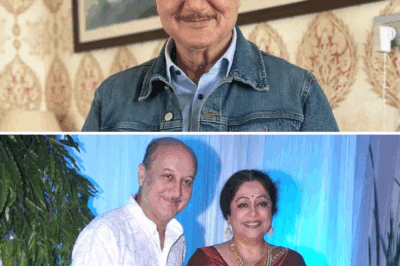When the news broke that 25-year-old tennis prodigy Radhika Yadav had been killed by her own father, the nation reeled in horror. But beyond the shock of patricide, darker questions are emerging: Why would a father destroy the dreams of the daughter he once nurtured?
Dipak Yadav, a prosperous real estate investor from Gurugram, appeared to be a doting dad on the surface. He supported Radhika’s passion for tennis, financing her training, and even launched a tennis academy to help her flourish. Yet, despite this support, Dipak shocked investigators by confessing to murdering his daughter—shooting her three times in the back while she cooked in the family kitchen.
Official records detail his confession: over time, he became increasingly unsettled by what he perceived as threats to Radhika’s reputation and independence. “People said she was using me for money,” he told police. “They questioned her character. I told her to stop attending the tennis academy. She refused.” On the tragic morning of July 10, he acted on those suspicions, admitting he brought a licensed revolver into the kitchen and pulled the trigger—while his wife was upstairs and his son away at work.
But a deeper look into the family’s dynamics suggests something far more sinister. Radhika’s uncle and aunt revealed publicly that Dipak earned substantial income through prime real estate rentals—far in excess of any monetary support from his daughter. Despite Dipak’s claim that her earnings were consuming him, the reality paints a different picture: he funded her training, helped launch a tennis academy, and provided for her every need.
This stark contrast suggests that finances were not the real motive behind the murder.
Closer to the truth may lie Radhika’s bold plans for her future. Relatives confirm she was exploring options outside traditional norms—launching social media channels, refusing to marry unless it was on her terms, and expressing a desire to chase her dreams independently. These were ambitions her father seemingly opposed.
“Radhika wanted control over her life—her career, her platform, her choice,” say family members. Yet others hint that Dipak couldn’t bear the thought of his daughter stepping outside his influence, of defying the safe, predictable life he envisioned for her.
Sources close to the investigation reveal Dipak’s temper had grown volatile. Relatives describe him spiraling into anger and depression when faced with Radhika’s refusal to marry and concerns about her character in the village. Outings once filled with pride turned into tense confrontations in their Gurugram home.
On that fateful day, perhaps swept away by emotion or feeling cornered by what he saw as threats to both honor and control, Dipak’s fear turned murderous.
Now behind bars, Dipak is reported to be filled with remorse—torn between grief and guilt. “He told us, ‘I want to die. I want to be hanged,’” says Radhika’s uncle. He continually begs the court for the death penalty, believing he deserves no lesser fate for taking the life he once swore to protect.
Despite Dipak’s confession, puzzling questions linger:
Was there anyone else involved? Some villagers whisper about tensions between Radhika and others—whether romantic suitors she rejected or local skeptics who judged her social media presence and independence.
Was her death truly premeditated? Dipak claims he reached a breaking point—but was this a calculated act or a momentary breakdown fueled by patriarchal expectations?
How will the court interpret his remorse? Will this turn the tide toward leniency, or serve as further proof of his diminished moral standing?
This tragedy captures a harsh reality for many young women in India: the struggle between embracing independence and facing resistance from traditional structures. Radhika’s death is not only a crime—it’s a heartbreaking story many families silently recognize as a clash of generations, of evolved dreams colliding with entrenched fears.
Her story forces us to ask: Is it enough to wish a daughter well, or must we let her shape her destiny?
The police continue to investigate close family members for any possible involvement, while protecting the rights of both victim and accused. As proceedings move to court, all eyes are on the Yadav family’s demand for justice and the system’s reckoning with this brutal betrayal.
For Radhika, the world lost a young talent on the cusp of greatness. For her family, the longing isn’t just for justice—but for answers to questions only time and truth can reveal.
In the end, this tragedy serves as a painful reminder: when dreams ignite and traditions clash, the results can be devastating—if power, love, or fear aren’t carefully navigated.
News
A Mother Beyond Blood: Mahhi Vij Opens Up About Raising Khushi and Rajveer Like Her Own Ask ChatGPT
Sometimes, it’s not blood that defines family, but love, compassion, and the willingness to open your heart when it’s least…
The Nurse Facing Execution in Yemen: Nimisha Priya’s Fight for Life and Justice
Nimisha Priya’s story is one that shakes the soul—a tale of courage, desperation, and the harsh realities faced by many…
At 90, Dharmendra Finds Solace in Farming Away From Family: A Look Into His Peaceful Farmhouse Life
At 90 years old, Bollywood legend Dharmendra has chosen a life far removed from the hustle and bustle of Mumbai’s…
New Love or Just Lights, Camera, Action? Rumors Swirl as Shefali Bagga and Faisu Spark Dating Buzz
Social media has been buzzing with speculation, curiosity, and a fair bit of confusion after internet star Faisal Shaikh—better known…
Once a Star, Now Forgotten: Beloved TV Actress Found Disoriented on Streets of Bengal
In a heartbreaking twist of fate, a once-famous face from Bengali television and film has resurfaced under circumstances that have…
After 40 Years of Marriage, Anupam Kher Opens Up About the Pain of Never Having a Child of His Own
For over four decades, Bollywood legend Anupam Kher has stood tall as one of Indian cinema’s most respected and versatile…
End of content
No more pages to load


